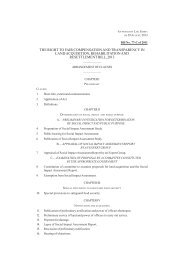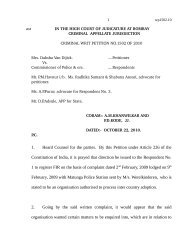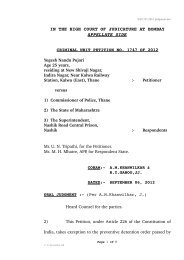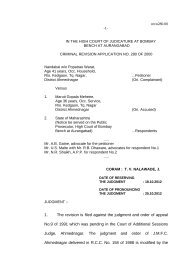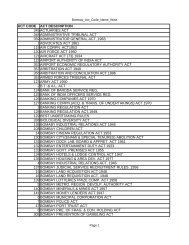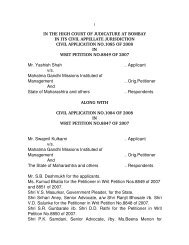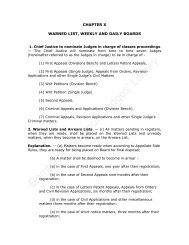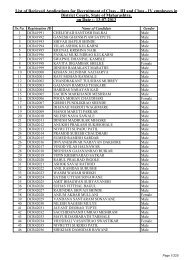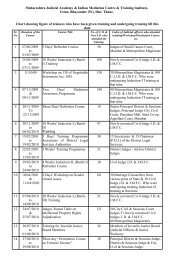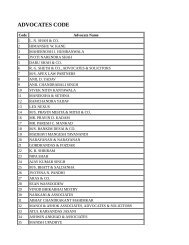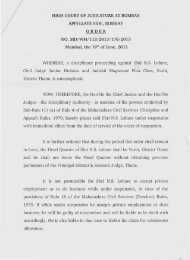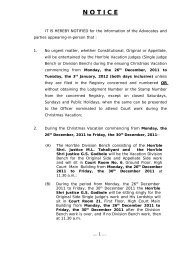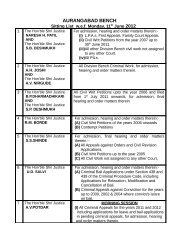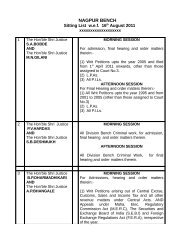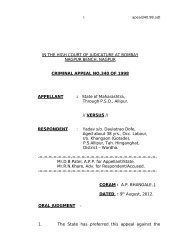Jer Rutton Kavasmneck alias Jer Jawahar Thandi - Bombay High ...
Jer Rutton Kavasmneck alias Jer Jawahar Thandi - Bombay High ...
Jer Rutton Kavasmneck alias Jer Jawahar Thandi - Bombay High ...
Create successful ePaper yourself
Turn your PDF publications into a flip-book with our unique Google optimized e-Paper software.
hvn<br />
34/195<br />
COAPPL41.12<br />
Law Board to him on any question of law arising out of such order:<br />
Provided that the <strong>High</strong> Court may, if it is satisfied that the appellant<br />
was prevented by sufficient cause from filing the appeal within the<br />
said period, allow it to be filed within a further period not exceeding<br />
sixty days.] ”<br />
(b) This court can only consider if the question of law has been<br />
wrongly decided and can not substitute its own discretion with that of the<br />
CLB and or inquire into the merits of the case on facts unless the order is<br />
arbitrary, capricious or has ignored settled principles regulating grant or<br />
refusal of injunctions or other interim orders. In the present case, no such<br />
case is made out by the appellants warranting interference. The respondents<br />
placed reliance upon the judgment of the Supreme Court in the case of V.S.<br />
Krishnan Vs. Westfort Hi-tech Hospital Limited and Ors. (2008) 3<br />
S.C.C. 363 and more particularly para 16 which reads :<br />
“16. It is clear that Section 10F permits an appeal to the <strong>High</strong><br />
Court from an order of the Company Law Board only on a question of<br />
law i.e., the Company Law Board is the final authority on facts unless<br />
such findings are perverse based on no evidence or are otherwise<br />
arbitrary. Therefore, the jurisdiction of the appellate Court under Section<br />
10F is restricted to the question as to whether on the facts as noticed by<br />
the Company Law Board and has placed before it, an inference could<br />
reasonably be arrived at that such conduct was against probity and good<br />
conduct or was mala fide or for a collateral purpose or was burdensome,<br />
harsh or wrongful. The only other basis on which the appellate Court<br />
would interfere under Section 10F was if such conclusion was (a) against<br />
law or (b) arose from consideration of irrelevant material or (c) omission<br />
to construe relevant materials.”<br />
37. Mr. Samdani, learned senior counsel appearing for the appellant submits<br />
that the question of law have been framed in appeal and are to be found at



